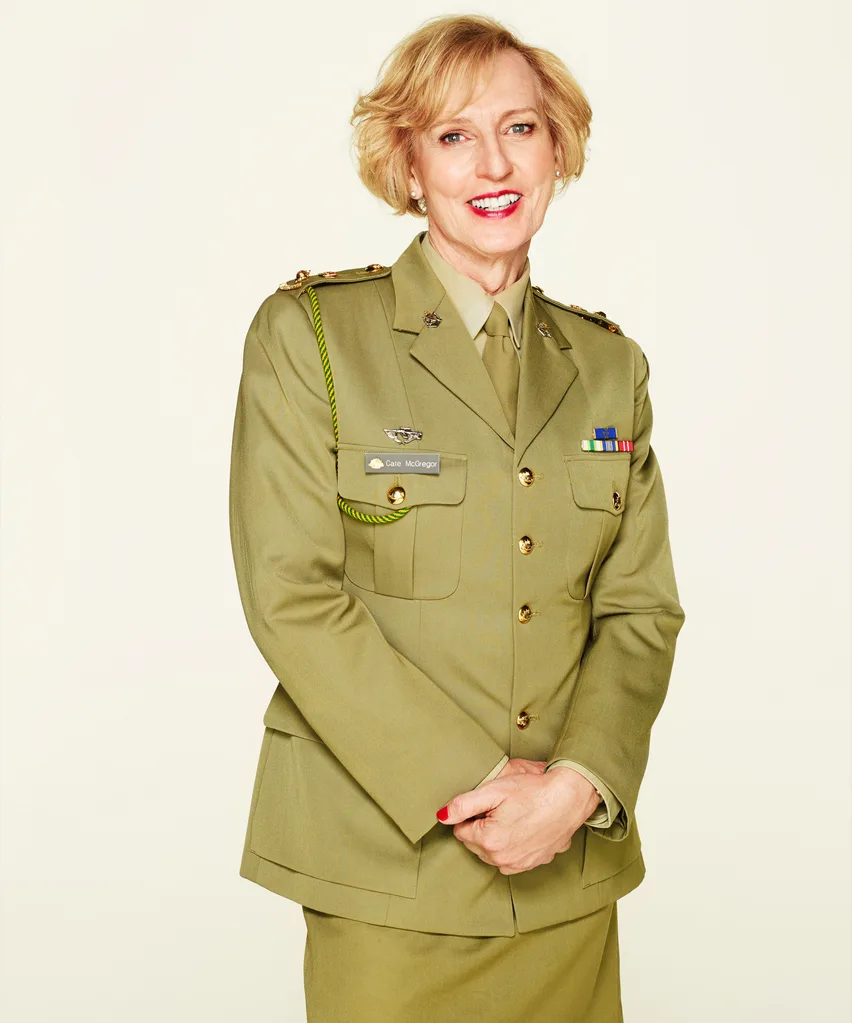Tony Abbott deserves more recognition for his steadfast public support for the world’s most senior transgender military officer Cate McGregor, says the woman herself.

Cate McGregor with her close friend Prime Minister Tony Abbott and cricketer Brett Lee at the launch of the PM’s XI, in December 2013.
In a wide ranging keynote address delivered at the National Press Club in Canberra on Wednesday Ms McGregor said that she felt the PM has received “almost no credit” for his leadership on a significant gender issue.
“He received cynical abuse from some quarters and almost no credit,” she said. “I find the reluctance of some in the human rights and gender lobbies to acknowledge exactly what Tony Abbott did quite puzzling.
“A conservative Catholic, who is far from the most conservative Christian in his cabinet, publicly embraced a trans[gender] woman and got sneered at in return. Some people really need to know how to take yes for an answer.”
Cate, born Malcolm Gerard McGregor in 1956, lived as a man for 50 years before she made the brave decision to transition as a transgender woman in 2012.
During her speech Ms McGregor said that upon coming out as transgender she had been accepted “generously” by many in the community but deferred telling Mr Abbott for some time.
“I did him a disservice and grossly underestimated his capacity for friendship,” Ms McGregor
Ms McGregor said once she told Mr Abbott his reaction was swift and resolute: “It was OK.”
“He didn’t run a focus group or ring [conservative Liberal MP] Cory Bernardi or Kevin Andrews to see if it was OK, he just did,” Ms McGregor said.
Still, Ms McGregor admitted during her address that she was disappointed Mr Abbott did not support gay marriage, though she can understand why he doesn’t.

Malcolm McGregor in uniform while serving in East Timor.
Cate is currently the Director of Research and Analysis in the Office of the Chief of Air Force, and is the most senior ranked transgendered military officer in the world.

Following the leave from the Army in June 2012 Cate McGregor returned to her position with a new uniform and gender.
Her decision, and her journey, was revealed to The Weekly’s Editor-in-Chief Helen McCabe in a recent interview. Here she talks about growing up feeling as if she were a girl, and not knowing why.
In the interview she speaks about her marriage. “We both envisaged growing old together,” she says of his wife.”I would not have married her if I thought my gender was not resolved.”
“It was challenging,” she says, “I had conflict about my gender from a very young age, I tried on mum’s clothes – I got into terrible trouble for that.”
Her strict catholic upbringing, she notes, was one of the reasons for her late transition.
“One always would love to think that our parents accept us, and just want us to be happy – but… I don’t think my dad would have coped with this,” she says of her father, “He was a World War II veteran… he was extremely male. He dreamt that I would be a soldier, and that I would play cricket for Australia.”


.jpg?resize=380%2C285)
